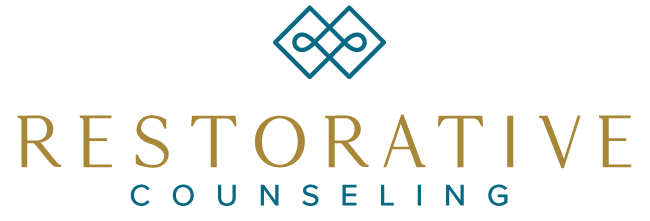
Sobriety Support
Maintaining Your Sobriety
Facing challenges with substances can feel overwhelming, especially when you’re trying to maintain your sobriety after an intensive treatment program.
At Restorative Counseling Services, we view substance use disorders as complex struggles affecting mind and body, where the substance offers relief but perpetuates pain. We tailor treatments using evidence-based approaches to deliver personalized care based on your unique challenges. We’re passionate about helping you maintain control and rediscover a life free from the grip of substance use.
Our team at Restorative Counseling Services understands how substance use can hold you back from enjoying life to the fullest. Our counselors provide a safe and nonjudgmental space for you to discuss the ways substance use has impacted you. We will walk alongside you on this journey to discover not only the root of your substance use, but to create healing throughout the process and help you develop the skills necessary to maintain sobriety. We recognize that everyone has their own specific needs, and your therapist will create a specific, tailor-made approach to help you achieve your goals and making lasting change in your life.
Reach Out to Us: Book Now in Atlanta or Roswell
Recognizing the signs of a substance use disorder and seeking treatment are brave steps. Seeking ongoing support to reinforce your sobriety and address underlying issues is a great move toward maintaining balance in your life. We at Restorative are here to help. We offer excellent therapeutic care in a warm and safe environment and would love to help you thrive.
Staying Sober
Becoming sober is a crucial step toward reclaiming control of your life. But having a substance use disorder is more than just a habit - it's a complex, ongoing, struggle that affects your mind and body. It’s also a sticky cycle where substance use feels like the only available relief, yet it perpetuates the very pain you're trying to escape.
Recognizing the signs of a potential relapse and short-circuiting unhealthy mental and emotional patterns can be the key to untangling the complexities involved and discovering a path back toward balance and well-being. Your therapist at Restorative Counseling can help you understand and deal with underlying issues that may be causing this emotional distress.
Treatment Approaches used in Sobriety Support
So how do we help you maintain sobriety? Our therapists start with a comprehensive assessment to correctly identify the type of substance use disorder you have battled. They will also gain an understanding of the underlying issues driving your substance use. Your therapist will then tailor your sessions to meet your specific needs by utilizing two treatment styles as appropriate: Cognitive Behavior Therapy and Dialectical Behavior Therapy.
Cognitive Behavior Therapy (CBT)
CBT is an evidenced-based treatment approach for a range of frequently presenting concerns. This style of therapy challenges and evaluates thought patterns, which in turn drive emotions and behaviors. CBT helps us see the link between the ways we think and act, and how this impacts our emotional experience. When we begin to challenge old patterns of thinking and ways of seeing our world, we see hope in places we previously felt stuck.
CBT is built on the premise that it is the meaning we give to events in our lives that often causes us the most pain, not necessarily the events themselves. By challenging these meanings, we can change our emotional experience. For example, we might filter our circumstances through a negative lens. Imagine your boss gives you feedback that contains some constructive criticism on a project you’ve been working on. You may internalize the feedback and start thinking of yourself as a failure and feel that you can never do anything right. This can then send you into a downward spiral of feeling worthless and experiencing an overwhelming sense of shame. You may feel that you have to be perfect, or you are a complete failure, without a realistic middle ground. This in turn could lead to substance use to numb those feelings. CBT will help you evaluate distorted ways of thinking and find a more healthy, helpful, and true way of seeing yourself and the world around you.
Through CBT, we process how certain ways of thinking hurt more than they help. By recognizing cognitive distortions, we begin to increase our awareness of how often we think in these terms. We then start to develop skills that help us not only identify when we engage in this style of thinking, but also create change in the way that we think about ourselves. This in turn creates a more helpful emotional response and experience, along with a change in our behavior.
Dialectical Behavior Therapy (DBT)
DBT is a form of therapy that focuses on using skills to change our emotional experience. DBT skills are powerful tools because they help you relate and respond to emotions and situations more effectively. DBT participants engage in skills training in four distinct modules: Emotional Regulation, Distress Tolerance, Interpersonal Effectiveness, and Mindfulness.
Emotion Regulation
At times you may feel your emotions control you, instead of you being in charge of your emotions. Emotion regulation skills are useful because they teach you how to recognize and understand emotions, increase positive emotions, become more mindful of your emotions, avoid giving into emotional urges, and solve problems in helpful ways.
Distress Tolerance
In a moment of crisis, you may use coping strategies to help yourself deal with your intense emotions. Some of these coping skills (such as avoidance or substance use) may provide short term relief, but they may also cause harm by leading to angry outbursts or self-harm. Developing healthy coping skills can help you get through difficult moments. These distress tolerance skills can help you regulate intense emotional experiences during a crisis.
Interpersonal Effectiveness
Intense emotions and swift changes in your mood can make it hard to create healthy and lasting relationships which is compounded by excessive substance use. It’s important to understand how you feel and what you want in a relationship. We’ll help you improve your relationships by mastering important interpersonal effectiveness skills such as active listening and reflecting, the art of validation, improving social interactions, and building assertiveness. These skills will help you learn how to ask for what you want, work through conflict, and build self-respect.
Mindfulness
It’s critical to develop awareness and acceptance regarding what is happening in the present moment. Mindfulness will help you to be aware of, and accept, your thoughts and feelings without any judgment. These are known as the “What” skills of mindfulness. The “How” skills of mindfulness will show you how to balance these emotions and thoughts with things you know to be true. Using mindfulness skills on a regular basis will help you accept your thoughts and feelings for what they are without allowing them to completely control your reactions and responses.
While mindfulness and distress tolerance skills help you work toward acceptance of your feelings and circumstances beyond your control, emotion regulation and interpersonal effectiveness skills help you work toward changing your thoughts, feelings, behaviors, and relationships. DBT skills are powerful tools because they help us relate and respond to emotions and situations more effectively. DBT is considered a sub-type of CBT, but there is some overlap between the two. Both involve helping you understand and manage your thoughts and behaviors. However, DBT puts a little more emphasis on managing emotions and interpersonal relationships.
Your therapist will empower you to create change in useful and tangible ways by applying the most pertinent skills from Dialectical Behavior Therapy and Cognitive Behavior Therapy. By offering you concrete skills you can apply outside of the therapy office, your therapist will help you create lasting change in your life.
Reach Out to Us: Book Now in Atlanta or Roswell
If you would like to learn more about partnering with therapist at Restorative to maintain your sobriety and live a full thriving life, please get in touch for a free consultative call with a sobriety support expert. Click below or call us at 678.403.0112.



